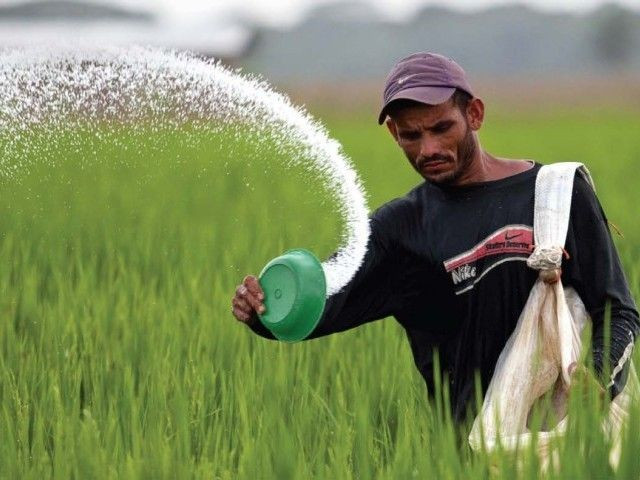Uniform gas prices proposed for fertiliser plants
Farmers paying higher prices of fertiliser despite plants receiving discounted gas

The government is working on a plan to introduce uniform gas prices for fertiliser manufacturers.
Two new fertiliser plants have been receiving gas at lower prices as compared to other plants. Despite this, they have been charging higher prices from farmers.
In addition, a couple of fertiliser plants are operating on expensive liquefied natural gas (LNG) and the government is paying a subsidy on the supply of LNG to these plants.
Fertiliser plants have not only been receiving cheaper gas for manufacturing but have also received billions of rupees in gas infrastructure development cess (GIDC). However, they have not deposited it in the national exchequer.
Crucially, farmers are paying higher prices for fertilisers despite the plants receiving discounted gas.
Therefore, the government has planned to introduce a policy of uniform gas prices for fertiliser manufacturers, who have also backed this initiative. The government believes that this move would stimulate market competition within the fertiliser manufacturing sector.
In the past, however, different sectors had a monopoly and thus had been manipulating prices accordingly. This resulted in the exploitation of farmers who were forced to purchase fertiliser at a higher price.
The new proposed policy of uniform gas prices may also lead to deregulation of fertiliser prices. The fertiliser sector has also been lobbying to allow it to set prices without any government involvement.
The government recently held a meeting on pricing of feed gas for fertiliser plants. Minister of industries and production directed the additional secretary to brief the forum, who subsequently gave a presentation and apprised the forum of different fertiliser manufacturers.
The petroleum minister stated that the government wants to rationalise the prices of gas being provided to fertiliser manufacturers so that market competition can be enhanced.
In the current scenario, two plants are carrying out operations on RLNG at a higher price than the rest of the manufacturers. This merits discussion and debate as to what should be the fair margin and at what price gas should be provided.
Agritech CEO informed the meeting that both Sui Northern Gas Pipelines Limited (SNGPL)-based plants are operating in the national interest, at a contribution margin of Rs186 per bag, which is not economically viable.
Fatima Fertiliser CEO endorsed this viewpoint and requested the government to shift both the SNGPL-based plants to indigenous gas at the earliest.
He stated that balanced fertiliser application needs to be promoted. He also supported the initiative of uniform gas prices for all manufacturers.
Published in The Express Tribune, August 23rd, 2022.
Like Business on Facebook, follow @TribuneBiz on Twitter to stay informed and join in the conversation.



















COMMENTS
Comments are moderated and generally will be posted if they are on-topic and not abusive.
For more information, please see our Comments FAQ